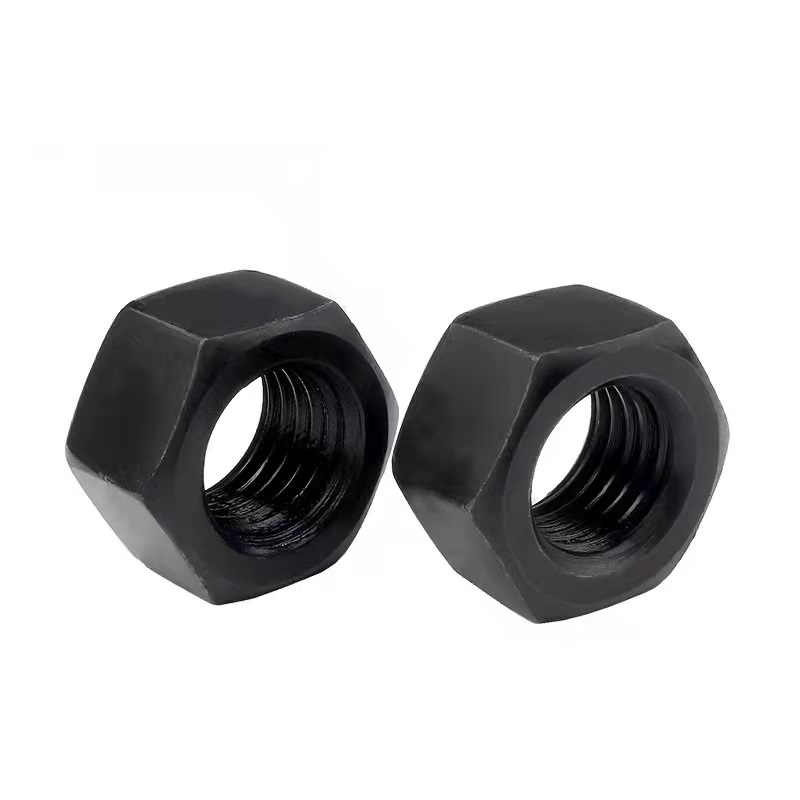Exploring RS3 Bolt Manufacturing Facilities and Their Impact on Industry Innovation
Oct . 17, 2024 20:38 Back to list
Exploring RS3 Bolt Manufacturing Facilities and Their Impact on Industry Innovation
The Rise of RS3% Bolts Factories Revolutionizing the Fastener Industry
The fastener industry, particularly the niche of bolts and screws, has experienced significant advancements in recent years. One of the most intriguing developments has been the rise of RS3% bolts factories. These factories are not just simple manufacturing units; they represent a paradigm shift in production efficiency, quality control, and innovative technology application. In this article, we will explore the reasons behind the ascendance of RS3% bolts factories, their operational principles, and their impact on the broader industrial landscape.
Understanding RS3% Bolts
Before diving into the specifics of RS3% bolts factories, it’s crucial to understand what RS3% bolts are. These bolts are constructed using advanced materials and unique engineering designs that enhance their performance, durability, and resistance to environmental factors. The designation RS3% typically refers to a specific formulation that incorporates a 3% additive to standard bolt materials, which drastically improves tensile strength and fatigue resistance.
Innovations in Manufacturing Technology
The core of the RS3% bolts factories lies in their innovative use of technology. Modern manufacturing techniques such as automation, 3D printing, and computer numerical control (CNC) have revolutionized production lines within these factories. Automation helps streamline repetitive tasks, reducing human error and increasing output. Additionally, CNC technology ensures precision and consistency, allowing for high-quality products that meet strict industry standards.
3D printing is particularly noteworthy in the production of RS3% bolts, as it allows for rapid prototyping and customization. Manufacturers can swiftly develop and test new designs before committing to full-scale production, ultimately reducing lead times and costs. This flexibility is a game-changer in industries requiring specialized fasteners, such as aerospace and automotive.
Quality Control and Sustainability
Quality control is paramount when producing fasteners that can withstand extreme conditions. RS3% bolts factories adhere to rigorous quality assurance protocols, utilizing advanced testing methods such as tensile testing, corrosion resistance assessments, and fatigue analysis. This ensures that every bolt produced meets or exceeds industry standards, providing peace of mind to manufacturers and end-users alike.
rs3 bolts factories

Moreover, sustainability has become a significant priority for RS3% bolts factories. The fastener industry, historically associated with considerable waste and environmental impact, is undergoing a transformation. Factories are investing in eco-friendly practices, including recycling materials, reducing energy consumption, and minimizing waste in the production process. By adopting sustainable practices, these factories not only comply with regulations but also appeal to environmentally conscious consumers.
Economic Impact and Employment
The rise of RS3% bolts factories has substantial economic implications. By streamlining manufacturing processes and producing high-quality products, these factories create more competitive pricing for bolts and fasteners. This competitiveness has a ripple effect on various industries, leading to cost savings and increased efficiency for manufacturers in sectors such as construction, automotive, and machinery.
Additionally, the establishment of RS3% bolts factories has generated numerous job opportunities. As these factories require skilled labor for operation, there is a growing demand for trained professionals in manufacturing technology, quality control, and engineering. This not only stimulates local economies but also contributes to workforce development and skill enhancement within communities.
Challenges and Future Perspectives
Despite their many advantages, RS3% bolts factories face challenges, including fluctuating raw material costs and the need for continuous technological advancement to remain competitive. Moreover, maintaining a balance between automation and skilled labor is essential, as an over-reliance on machines can lead to job displacement.
Looking ahead, the future of RS3% bolts factories appears promising. As industries continue to evolve, there will be a growing demand for fasteners that offer superior strength, durability, and sustainability. The ongoing commitment to research and development will likely yield even more innovative materials and manufacturing processes.
Conclusion
In summary, the emergence of RS3% bolts factories marks a significant milestone in the fastener industry. Through innovative manufacturing techniques, a commitment to quality and sustainability, and a positive economic impact, these factories are setting new benchmarks for the future of bolt production. As the demand for high-quality fasteners continues to grow, RS3% bolts factories will undoubtedly play a crucial role in shaping the industry's landscape for years to come.
Latest news
-
High-Quality Panel Stud Bolt Reliable Panel Stud Bolt Factory & Suppliers
NewsJul.08,2025
-
High-Precision Fine Thread Locknuts Manufacturer & Supplier Custom Solutions
NewsJul.08,2025
-
PH Imperial Stud Bolt – High Strength Fasteners from Leading Supplier & Factory
NewsJul.07,2025
-
High-Quality Allen Wrench Bolts Leading Factory, Company & Suppliers
NewsJul.07,2025
-
Wholesale Ball Stud Bolt - High Quality Supplier & Factory Price Reliable Wholesale Ball Stud Bolt Company
NewsJul.06,2025
-
High-Strength Alloy Bolts Manufacturer & Supplier Quality Alloy Fasteners Factory
NewsJul.06,2025
